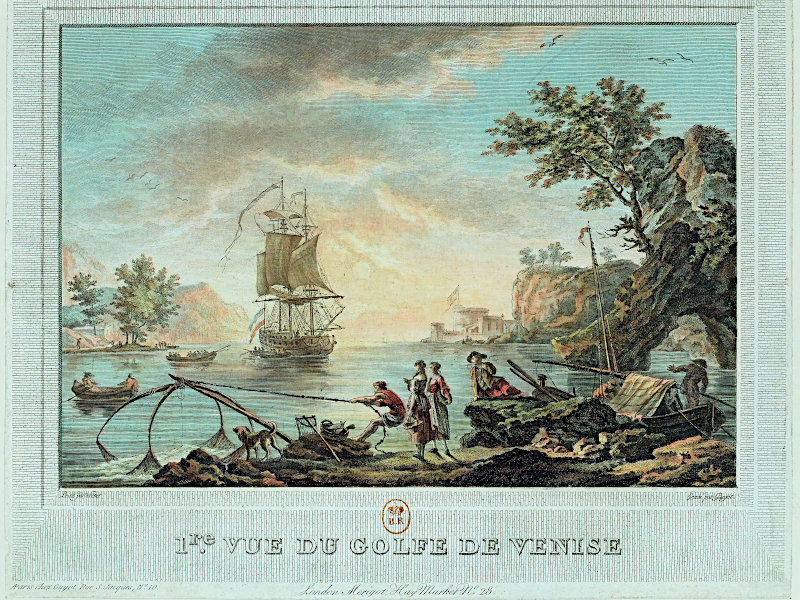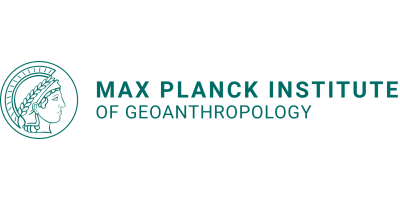The Water City
The Political Epistemology of Hydrogeological Praxis
Project
The Max Planck Partner Group “The Water City” brings the city and the environments of Venice into focus as the basis for historical and comparative studies on global geo-anthropological processes. We take into account the multi-faceted reality of a ‘hydropolis’, which has always constituted a crossroad of environmental, cultural, political, economic, and migratory phenomena. The Partner Group started as a collaboration with the Max Planck Institute for the History of Science in Berlin and is now creating a bridge between the Max Planck Institute of Geoanthropology in Jena and Ca’ Foscari University of Venice. It brings together a group of international scholars, whose research is motivated by common environmental and cultural-political concerns about the present state of the world vis-à-vis its scientific and technological transformation.

Every time that high sea tides flood the city of Venice we are forcefully reminded of the responsibility that humans share for the rise in global temperatures and sea levels. An inquiry into the geo-environmental practices and politics of Venice offers a paradigmatic case to reflect on the intwined history of humans and their environment. Ongoing research into sustainability and geo-anthropology has emphasized the importance of evaluating alternative historical paths to achieve a dynamic balance between humankind and nature. As the research on the Anthropocene conducted at the Max Planck Institute of Geoanthropology is demonstrating, an epistemic and social history of the environment can diagnose the problems facing our societies and play a substantial role in finding cures that go beyond top-down solutinism and foster broad interdisciplinary and socialized approaches. The specific contribution of the partner group The Water City is to historically comprehend geo-environmental politics. The natural-artifical realty of Venice, it Lagoon and hydrographic basin constitutes an ideal site of geanthropological reflection both historically and symbolically.
The research focus of early-modern Venice is a promising point of departure for concrete studies on geo-environmental history in the longue durée, and the consolidation of a historical line of inquiry into hydrogeological praxis in line with the most pressing questions of today’s debates on the anthropic transformation of the earth system. It has established inter-disciplinary collaborations and comparative cross-cultural studies, and constitutes an example of how historical sources can help extract useful data for hydrogeological history.
Archival documentation of the environmental politics of Venice in the sixteenth and seventeenth centuries is vast and well preserved in the Venetian archives (in primis, the State Archive of Venice), in the local libraries, and in the libraries of Veneto region. It calls for in-depth investigations in relation to questions of climate change and geo-environmental management. These materials are of great scholarly interest, as a means of reconstructing the scientific knowledge and practices that made the exchange between the water-civilization and its territory possible.
Comparative historical and cross-cultural cases complement research on Venice, by means of exchanges with scholars from all over the world. Specific research foci on Mexico and India are being developed as part of this research project.
Research lines
Main areas of investigation
1. Venice Water Knowledge Economy in the Longue Durée
The scientific-institutional context of early-modern Venice’s hydrogeological praxis offers a unique insight into the complexity of geo-environmental politics and the multiple historical and natural elements of past (and present) anthropic transformations of the Earth. While the protection and management of the available resources and the watery environment have always been at the forefront of Venetian consciousness and politics, the implementation of effective environmental politics and the geo-engineering of the hydrographic basin of the lagoon only became possible after the consolidation of Venetian dominion over the mainland in the fifteenth century. Specific institutions were created for the management of both the territory and its resources. The most important office was the ‘Collegio alle acque’nor Water Office, which controlled and directed anthropic activity related to the ‘waters’. Historians generally date back the foundation of this permanent institution to the Renaissance, when a committee of ‘Savi alle acque’ (Water sages) was instituted together with three esecutori (executors). This group of knowledgeable men oversaw all issues connected with water policy in three main areas: the lagoon, the shores and the rivers. Other administrative offices functioned in parallel with this magistrate, in order to regulate and control the use of other resources – including mines ('Deputati alle miniere') and woods ('Provveditori alle legna e boschi') – which were of strategic importance for the Venetian Arsenal (a fundamental scientific-technical institution under the direct control of the Republic of Venice).
Their activities of the Water Office produced documentation that is invaluable for scholarly research throughout the centuries. These documents are preserved in the archives, especially the State Archive of Venice and other institutions (e.g. libraries). They constitute a veritable mine of historical information for geo-environmental history.
From the viewpoint of the history of science, it is important to emphasize that the years of the creation of the Water Office correspond to an age of booming scientific and technological advances, which is usually referred to as ‘Scientific Revolution’. The socio-political and environmental roots of modern science have rarely been as well documented as they have been in this case. Therefore, this study will also contribute to current research into practical knowledge and its societal settings. Problems of water politics and hydrogeological engineering ignited scientific debates that are still relevant today. Early modern Venetian engagement with the environment produced a large body of knowledge and highly sophisticated scientific works on topics that connected hydrology with mechanics, engineering, geology, and tidal theories, to mention only the most outstanding areas. They cannot be understood in insulation but as part of a complex water knowledge economy rooted in ecology, economy and mindsets to be carefully reconstructed. Manuscripts, archival documents and early publications, within this thematic cluster can be seen as the epistemic expression of the knowledge-mediated relationship between the water-civilization of Venice and its context.
Such materials and themes have offered solid foundations of the research of this Max Planck partner group.
2. Comparative Waterscapes
The Water City aims to create a network of comparative studies of historical waterscapes in different sites across the world by looking at the epistemological connection between cosmological and ecological knowledge in water-landscapes engineering. The main goal is to study water heritage as an open-ended historical geo-anthropological process, comprehend the current conjuncture, marked by socio-ecological unbalances, and assess alternative pathways to a sustainable future. The water-cycle, seen from a historical and anthropological perspective should open new meaningful pathways, which are apt to address the environmental crisis of the Anthropocene by crossdisciplinarily integrating the agendas of historical sociology and hydrology.
Two comparative contexts have been investigated with special attention:
2.1. The Geoanthropology of the Kaveri Delta in India
The Kaveri Delta region of South India has witnessed attempts at large scale changes to its land and rivers, over thousand years. Different forms of control over labor and resources marked these transformations in these landscapes. The changing social relations around these changes mediated different regimes of extraction, even though preferences of what can be extracted, kept changing. The laboring people of the Delta and their fields of work carried the traces of these changes. This research line trace these changes through the changing relation between canal irrigation, rice cultivation and bondage at three distinct moments of this region – the medieval Chola Empire, the British colonial interventional moment, the moments of the nation state and food security and the present-day moment of climate adaptation programs. Understanding these changes would provide us the resources to reimagine the possibility for justice to nature and labor of these landscapes.
Principal Investigator: Senthil Babu D.
2.2. The Geoanthropology of the Basin-Valley of Mexico/Tenochtitlán
One of the first, but generally forgotten, examples of the human impact on the environment in its modern form was the rise of Ibero-America. The inception of the New World involved not only a mixture of cultures but also of natures, which would shape the world as we know it, including imperialism and colonial practices. In this way, this process was not impartial and innocuous, but rather transformed local worldviews, practices, and environments at once to adjust them to European conceptions. One of the most dramatic examples of these changes is the Basin-Valley of Mexico. Originally the Mexica promised land located between lakes, it became a place of struggle between the city and the waters. With Spanish rule, new water policies were developed trying to dry the lakes to keep the city safe from flooding. This urban vision not only went against the needs of life linked to the lakes, but also encouraged their transformation into reclaimed land in favor of the expansion of the city. Due to the scope of the task which was a lasting process with huge geomorphological consequences, this transformation was not achieved until the consolidation of the independent nation, and even continues to this day. Therefore, colonization practices have not stopped transforming the watershed into a large metropolitan area, as well as taking water from nearby basins to relieve the thirst of the city’s inhabitants, but also of real estate business.
Principal Investigator: Omar Rodriguez Camarena
3. Towards a Historical Hydrosocial Assessment of World Waters
The Water City collaborates with the UNESCO Chair of Water Heritage and Sustainable Development towards a hydrosocial integration of the annual UNESCO World Water Assessment Report.
The basis assumption of this program is the following one: Any attempt to understand water and its cycles independently of human agency and culture prove insufficient for the challenges that the current multiple planetary crises pose – challenges that the Sustainable Development Goals of the UN Agenda 2030 summarize. No abstraction is valid in absolute terms nor there is any necessary unique solution (or uniquely technical solution) to resources-related problems. As validity and goals are inseparable, water politics cannot be reduced to pure modeling, calculation, engineering and control of flows. Rather, it is at once a technical, environmental, biological and cultural issue. It calls for multidisciplinary collaborations that are oriented towards ideals that ought to be made explicit in order to offer directions for collective action. Hydrosociology must be tied to a dynamic and multiple comprehension of the natural-cultural reality. This is the resultant of the entwinement of several processes, which comprise: natural ecosystems, socio-political agency, psychological-cultural meaning and technoscience. By assuming an epistemology of contextual situatedness, hydrosociological knowledge embraces a historical perspective from below, which fosters more democratic, socialized and crosscultural paradigms. The planet is not an abstract cosmological or geological entity devoid of human subjectivity and agency, but rather relates to a problem of global governance that can at best understood from a perspective from below that takes into account the unequal relations that ground the Anthropocene conjuncture.
4. Political Epistemology of Space: Geopraxis
The assessment of the relevance of hydrogeological praxis is inserted in broader considerations on the political epistemology of space, that is the socio-environmental conditions and consequences of knowledge-mediated practices of world-making. From architecture to landscape engineering the organization of space and the abstractions that make it possible have always been the inscription of social relations in space. Far from a necessary process that is determined by impersonal mechanisms, the historical developments of waterscapes and spatial organization in general is here considered as a practice of territorialization, a geopraxis.
Principal Investigator: Pietro Daniel Omodeo
5. Visualizing the Anthropocene
A collection of audiovisual lectures on Anthropocene Venice aims to offer a multiple access to the central themes of The Water City. The dissemination of these materials will occur in two stages: first as a MOOC for students and second as an audiovisual podcast.
Curators: Pietro Daniel Omodeo and Pietro Consolandi
6. Anthropocene: Epistemology and Esthetics
Water City fosters reflexive and methodological work aiming at new interdisciplinary approaches that are at the height of the expectations of the emergent field of geoanthropology. This is achieved through a two-pronged inquiry into the historical epistemology and the aesthetics of the Anthropocene.
6.1. The Political Epistemology of the Anthropocene
In March 2024, the Subcommission on Quaternary Stratigraphy of the International Commission on Stratigraphy rejected the Anthropocene thesis. According to this most reputable scientific body of geologists there is no necessity to introduce a new epoch into the International Chronostratigraphic Chart, in which the ‘anthropos’, that is to say, human societies and technologies, have become the main drivers of the Earth System. We are still in the Holocene. Yet, this authoritative decision that ‘we are not’ in the ‘geological’ epoch of humankind, while the human impact on the planet has objectively altered it in irreversible manners, is an invitation to reconsider the ‘nature’ of the forces of this transformation. Although the Anthropocene debate has led to new considerations on humanity as ‘species’, the negation of a geological definition of human agency can also offer an opportunity to move beyond essentializing tendencies and reductionisms. By contrast, it can reactivate the most important of history’s temporalities from a political and ethical viewpoint: the future. If (for now at least) the epoch of the humans does not exist, what can such epoch look like from a cultural and environmental perspective. The ‘humanization’ of the planet reopens the question about de-essentialized freedom and self-determination as a more fundamental comprehension than any reified understanding of history. If the rejection of the Anthropocene implies the rejection of a fixed determination of ’what' it means to be human, this impasse is an opportunity, too. It guides the debate towards new possibilities, in particular prescriptive ones or even utopian explorations of possible futures to be achieved through collective ecological and political decisions. In other words, the question of the Anthropocene humanity without ambiguities now shifts from fact to choice, from geology (or biology) to agency.
Principal Investigator: Pietro Daniel Omodeo
6.2. Trascendental Geology
Principal Investigator: Giovanni Fava
6.3. Aesthetic Sensibility in an Age of Crisis: Radicalizing Environmental Styles
Drawing on the field of critical theory and the most recent environmental humanities, the research attempts a reinterpretation of environmental aesthetics capable of focusing on the ecological crisis and then analysing it with renewed tools.
The first section starts precisely from this problematic issue: how is it possible that environmental aesthetics, despite having been born ("Contemporary aesthetics and the neglect of natural beauty", Hepburn, 1966) at the same time as the emergence of the ecological crisis within the public debate, has often left this object of study on the background, moreover assuming a purely analytical and depoliticised attitude? The aim of the introductory section will therefore be to introduce the discipline, first outlining the dichotomies that usually structure its field, then advancing new constituent oppositions which have often remained under the surface but are now more central than ever within the ecological debate.
The research will then proceed with Maskit's invitation ("On Universalism and Cultural Historicism in Environmental Aesthetics", 2014) to move away from universalism in environmental aesthetics, turning instead towards a continental approach capable of contextualising - that is, historicising, socialising and politicising - both the perceived object and the percipient subject. Drawing on recent developments of critical theory, the second section will thus try to overcome the opposition sketched before, showing how our aesthetic object (be it nature, the environment or, especially, the ecological crisis) can be considered as an entanglement of matter and meaning, how bodily perception can never be detached from shared and enacted interpretative habits, and how ethics and aesthetics always overlap and intersect with each other.
After showing the malleability of our objects, the situatedness of perception, as well as the ethical-political dimension of sensibility, the third and last part of the research will open by giving voice to the concern recently expressed by Latour and collegues ("Why has critique run out of steam?", 2004). A common trait of the various presented strategies is in fact that of criticising, devaluing or doubting the scientific enterprise and its results, affirming the indeterminacy of scientific objects, the specificity of the scientific gaze and the partisanship hidden in every scientific observation and description. If this awareness can lead some towards a critical understanding of science, the same can (and does) also foster science scepticism and denialism. In order to stem these drifts, we will return to the roots of the operations analysed, recovering the work of one of the main initiators (if not the founder) of the socio-historical critique of science: Ludwik Fleck. Thanks to the epistemologist's writings, it will thus be possible to elaborate new strategies useful for the ontological articulation of the climate phenomenon, the harmonisation of ecological perspectives and the ethical orientation in times of crisis.
Principal Investigator: Matteo Savoldelli
6.4. Experiencing the Anthropocene: Aesthetics
How can we adopt a more inclusive ecological perspective to create integrated knowledge encompassing humans and non-humans? Can art contribute to this new, knowledge-based approach, which values body-centred awareness alongside intellect perspective? Art and art theory represent realms where the opportunity to exercise freedom of action, aimed at creating shared spaces – both material and immaterial – can cultivate a sense of proximity between humans and the other aspects of nature. Art has historically served a symptomatic function, reflecting the collective feelings of society. Additionally, it can be viewed as a communication tool that employs a specific language to bridge various spheres of knowledge with the goal of fostering connections. Three empirical experiments will serve as entry points to explore the theoretical framework, investigating through on-field experiences the various potential developments of a new vision of art as a means of accessing and transforming the world. The Anthropocene represents a shift that necessitates a reassessment of how humanity experiences the world. It demands practices that foster an ethics of care for humans and non-human entities. Witnessing the collapse of Earth systems as they have been understood involves transcending partial perspectives and adopting a more comprehensive, planetary viewpoint. This necessity for an integrated perspective is examined by analysing contemporary art practices and scrutinising their societal roles and potential political significance. The aim is to question the subjective perspective and address the epistemological need to rewrite our collective experience. The feeling of uncertainty and bewilderment provoked by the awareness of living within a system that modifies the Earth system itself connects the two realms of aesthetics and epistemology. Revaluating senses and perception can help humanity overcome this impasse. A body-centred paradigm fosters knowledge connected to the sensible empirical. It encourages us to take responsibility for human actions and to discover new ways of accessing the natural world, reorienting human positionality. Can art promote an eco-centred view of the world? Can it be seen as creating Commons – common action, shared knowledge, communal goods, and community? The qualities of the artistic act will be revealed through the narration of experiences held in India (Kaveri Delta), Sweden (Umeå), and Italy (Venice). By approaching diverse contexts, the application of art as research from a site-responsive perspective is what is at stake. This aims to demonstrate that its capacity as a reflective practice for creating new Commons can serve as a means to integrate philosophical investigations into Anthropocene ontology and epistemology, seeking to understand the current lived experience of art and art practice while situating their approach within society and the era in which we live.
Principal Investigator: Francesca Melina
Group
- Pietro Daniel Omodeo (main responsible)
- Jürgen Renn (Berlin)
- Tina Asmussen (Bochum)
- Senthil Babu (Pondicherry)
- Cristina Baldacci (Venice)
- Giovanni Fava (Venice)
- Sascha Freyberg (Berlin)
- Rachel Gottesman (Jerusalem)
- Corinna Guerra (Venice)
- Heiner Krellig (Venice)
- Francesco Luzzini (Venice)
- Francesca Melina (Pavia-Venice)
- Giulia Rispoli (Venice)
- Omar Rodríguez Camarena (Venice)
- Matthias Schemmel (Hamburg)
- Matteo Savoldelli (Pavia-Venice)
- Sebastiano Trevisani (Venice)
- Klaus Vogel (Berlin)
Events and publications
Events
16 May 2024
2nd international workshop of the project Cosmography of Historical Waterscapes “Cosmological Waterscapes: Historical Hydrology and Present-Day Planetary Concerns” at the Tsinghua University (China)
5-7 July 2023, Jena
CROSSCURRENTS. Historical Waterscapes in Crosscultural Perspective. Jena, Max Planck Institut of Geoanthropology
Workshop webpage on the website of Max Planck Institut of Geoanthropology.
|
|
Historical Waterscapes in Crosscultural Perspective - Programme | 751 KB |
|
|
Historical Waterscapes in Crosscultural Perspective - Book of abstract | 131 KB |
11-16 October 2021 - Anthropocene Campus Venice
The Anthropocene Campus Venice (ACV) took the case of Venice as a point of departure to collectively reflect on geo-environmental politics in the ‘water city’ and beyond. Over the span of a full week, this forum provided a space for co-learning, interdisciplinary collaborations, and comparative studies bringing together environmental scientists, artists, historians of science and technology, geologists, environmental humanity scholars, archaeologists, and architects. On Thu 14th the inauguration of the Max Planck Partner Group The Water City took place during the Anthropocene Campus.
Colloquia
In collaboration with the Unesco Chair “Water, Heritage, and Sustainable Development”:
- 21 March 2023 at 14:00-15:00 - discussion of Chakrabarti, "Inscriptions of Nature", introduction and chap. 1
- 18 April 2023 at 13:00-14:30 - Maddalena Bassani and Fantina Madricardo, "Crossing Waters: A Cross-Disciplinary Approach to the Venice Lagoon"
- 23 May 2023 at 14:00-15:30 - Ludovica Galeazzo, "Venice’s Aquascape: The Islands of the Venetian Lagoon in a Geo-Spatial Infrastructure"
- 20 June 2023 at 1400-15:30 - Nicola Di Cosmo, "Floods and Dynastic Change in Seventeenth-Century China: A Case Study"
Dissemination
- Interview of Corinna Guerra for the Serbian National Television [SRP] - RTS documentary, Fantastic Planet TV show, by Vladimir Banic. Fantastic Planet [SRP], episode 5.
|
|
29/09-1/10/2022, Gargnano - Palazzo Feltrinelli [ITA]
P.D. Omodeo, R. Garau, C. Guerra, J. Regier presented the project ERC Early Modern Cosmology: Institutions and Metaphysics n° 725883, at the XI Seminario sulla scienza antica e la sua tradizione, Dipartimento di Filosofia, University of Milan |
54 KB |
Publications
Venice as a paradigm
- Baldacci C., Bassi S., Capitani L., Omodeo P. D. (eds.), "Venice and the Anthropocene: An Ecocritical Guide", Venice, Wetlands, 2022
Geoanthropological enquiries
- Corinna Guerra, "A Terrifying Poison or a Cheap Fertilizer? The Life and Death of Mount Vesuvius Ash", «Science in Context», vol. 34, issue 2, (2021), pp. 281–296 DOI 10.1017/S0269889722000151
- Sebastiano Trevisani and Pietro Daniel Omodeo, “Earth Scientists and the Sustainable Development Goals: Geocomputing, New Technologies, and the Humanities”, Land 10 (2021): 17pp.
Social-cultural flows
-
Guerra C. & Piazza Marco (eds.), "Disruption of Habits during the Pandemic", Milan, Mimesis International, 2022 ISBN: 9788869773297



